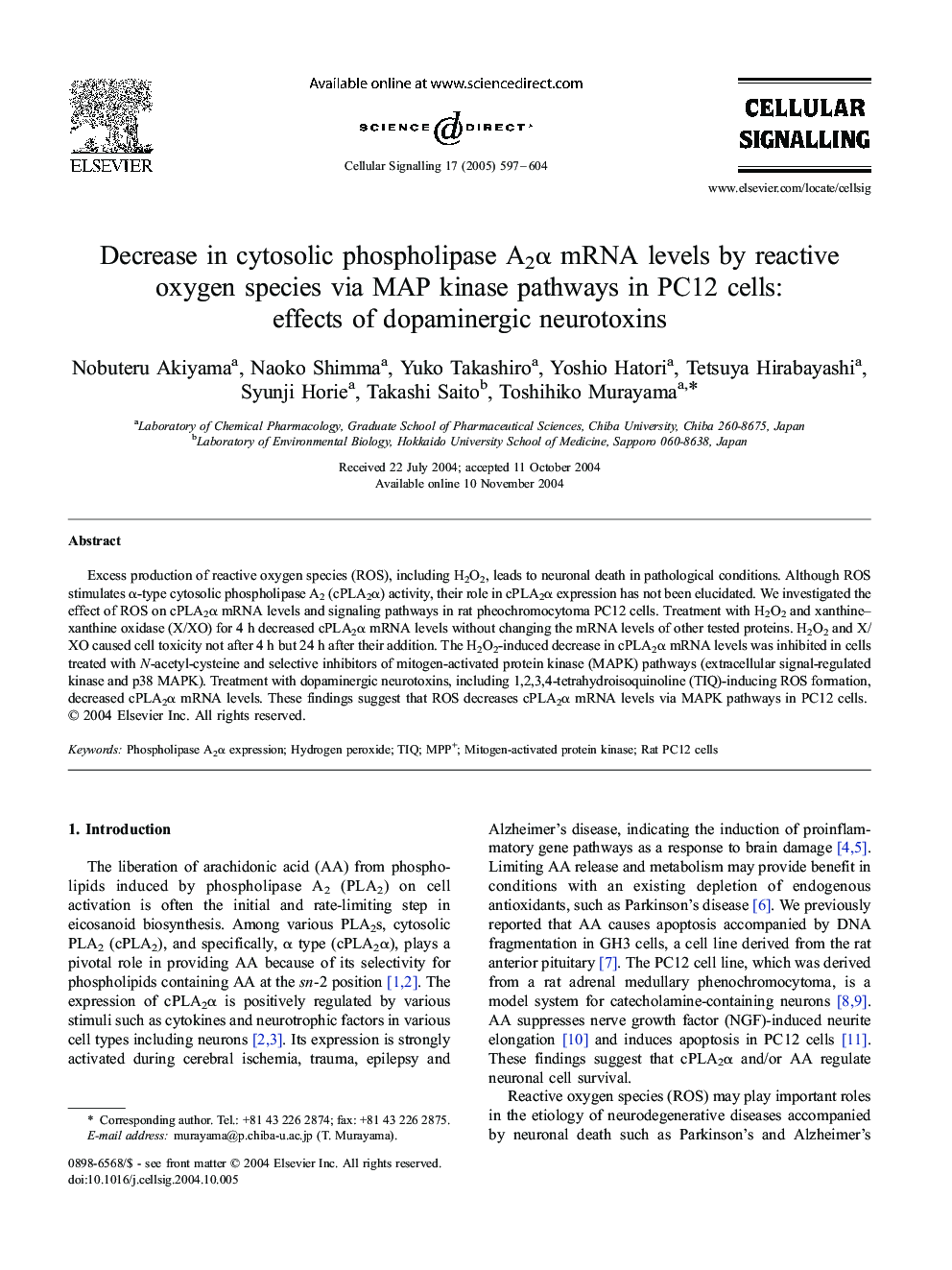| Article ID | Journal | Published Year | Pages | File Type |
|---|---|---|---|---|
| 10816530 | Cellular Signalling | 2005 | 8 Pages |
Abstract
Excess production of reactive oxygen species (ROS), including H2O2, leads to neuronal death in pathological conditions. Although ROS stimulates α-type cytosolic phospholipase A2 (cPLA2α) activity, their role in cPLA2α expression has not been elucidated. We investigated the effect of ROS on cPLA2α mRNA levels and signaling pathways in rat pheochromocytoma PC12 cells. Treatment with H2O2 and xanthine-xanthine oxidase (X/XO) for 4 h decreased cPLA2α mRNA levels without changing the mRNA levels of other tested proteins. H2O2 and X/XO caused cell toxicity not after 4 h but 24 h after their addition. The H2O2-induced decrease in cPLA2α mRNA levels was inhibited in cells treated with N-acetyl-cysteine and selective inhibitors of mitogen-activated protein kinase (MAPK) pathways (extracellular signal-regulated kinase and p38 MAPK). Treatment with dopaminergic neurotoxins, including 1,2,3,4-tetrahydroisoquinoline (TIQ)-inducing ROS formation, decreased cPLA2α mRNA levels. These findings suggest that ROS decreases cPLA2α mRNA levels via MAPK pathways in PC12 cells.
Related Topics
Life Sciences
Biochemistry, Genetics and Molecular Biology
Biochemistry
Authors
Nobuteru Akiyama, Naoko Shimma, Yuko Takashiro, Yoshio Hatori, Tetsuya Hirabayashi, Syunji Horie, Takashi Saito, Toshihiko Murayama,
